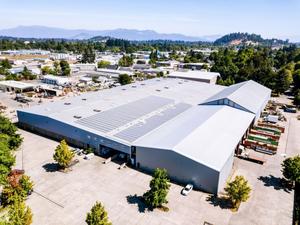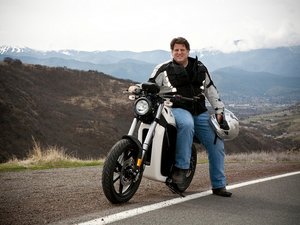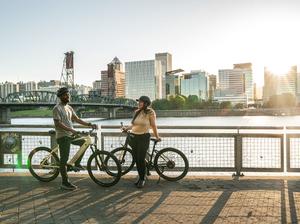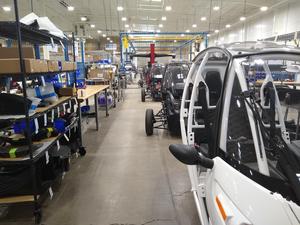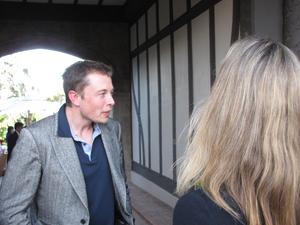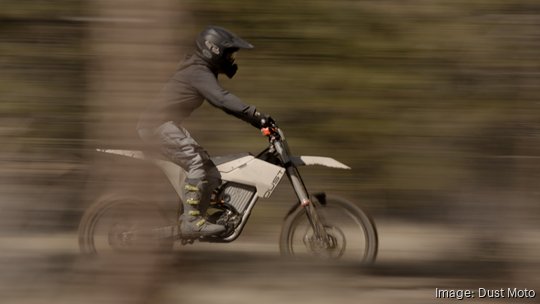
Colin Godby's work on Disney park rides, a popular Star Wars toy, UBCO utility bikes and a robotic baking venture are among the experiences that inform him in building the Bend-based electric dirt bike startup Dust Moto.
"One of our core principles is no science projects," the founder and CEO said. "A lot of companies spend multiple years of pure R&D trying to figure out if there's actually a project there. We had a really strong sense of product market fit and what exactly we were building and what the specifications needed to be."
Godby is also incorporating lessons from what happened to Arcimoto, the three-wheeled EV maker that gobbled up more than $200 million from investors and is now worth next to nothing.
Those would be the how not to build an electric vehicle company lessons.
"Arcimoto's actually one of our case studies or benchmarks of key learnings," Godby, a mechanical engineer by trade, said.
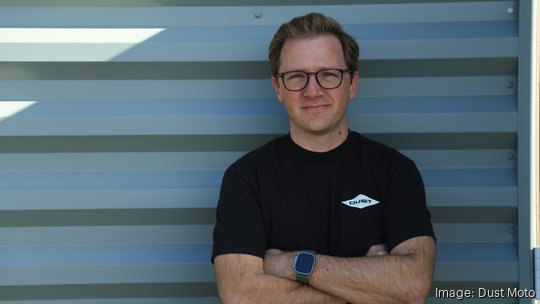
Dust Moto is just a year old, and tiny, consisting of Godby, two cofounders and a scattering of fractional contractors. Whether it ever amounts to anything, only time will tell, as the saying goes. But the company quickly arrived at a product design, built prototypes, enticed more than 120 customers to put up real money in a preorder program, and laid out a lean manufacturing vision.
All this with the money tide running against EV businesses.
"We founded the company in May 2023 and said we've got to be creative; we've got to show some traction and that there is actual demand in this specific category in the space," Godby said.
Two key learnings from Arcimoto
That gets at his first of two key critiques of Arcimoto: It failed to establish demand for its flagship Fun Utility Vehicle.
"They raised tens of millions of dollars and then they sunk it into manufacturing facilities without having a book of orders," Godby said. "I think that's not uncommon. A lot of businesses think if they build it customers will come. The reality is you need to establish a strong sense of demand for the product."
Dust went after that first by building an audience online. In a steady stream of newsletters, the company struck a tone of passion for dirt biking and transparency about the venture. A passage from an early newsletter about a trip the Dust team took to Southern California, where Godby grew up immersed in motocross and BMX, is illustrative:
"Time and time again, we received the feedback that the timing has never been better to jump in with two feet and participate in the progression of this amazing industry. The general consumer is aware of electric as the technology matures, the core customer has their interest piqued as to what potential benefits electric might offer, and there is an immense gap in the market for a dirt-focused American Brand."
Then in August, Dust unveiled Founders50. It offered 50 slots for 50 bikes at a 50% discount. Participants signed up to make 20 monthly payments of $250, with the vital catch that the payments are nonrefundable.
"This is unique because so many companies have been doing preorders, basically $100 down, but they're refundable," Godby said. "So really, there's no commitment there. And other crowdfunds are typically for lower cost products. We were asking for thousands of dollars."
The F50, as Dust calls them, get perks such as monthly meetings with the Dust leadership to learn about and help shape the direction of the company.
The offering sold out in 36 hours, providing Dust recurring revenue and helping open the door to $345,000 in angel investment. That helped with the design and building of a couple of prototypes.
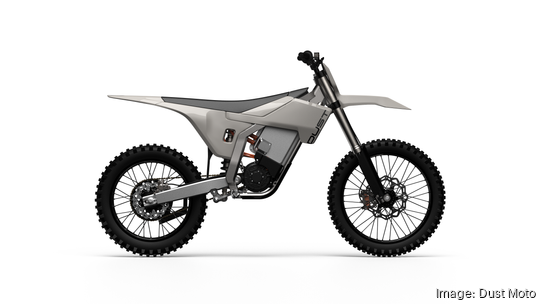
"The idea was let's show that the team is really strong, that we can be super-efficient with the capital, and build prototypes for much less than any kind of company might be able to do," Godby said. "We got pro riders on them straight out of the gate and the feedback was super positive."
That set the stage for a second round of crowdfunding, called First100. It requires $500 monthly payments, followed by a final payment of $1,800 when the bikes become available next year, adding up to $9,300, a 15% discount. Only the first $500 isn't refundable.
"We knew as we expanded the audience and the value proposition changed we were going to have the tweak the refundability of the program," Godby said. Seventy-one people have signed up so far, providing more recurring capital and additional evidence of demand.
To keep people aboard and bring in more backers, the company continues to remain deeply engaged on social media.
"So many crowdfunded campaigns, the money is collected and then people have no clue what's happening in the background," Godby said. "We wanted to make it really clear that our incentives are aligned with our backers and we're working our tails off to get these products designed and built."
Avoiding vertical integration
That gets to Dust's second learning from Arcimoto: Don't get sucked into expensive, time-consuming vertical integration.
"At Arcimoto, I guess they wanted to become experts at building their three wheelers," Godby said. "But I think if you look at some of the most successful hardware businesses in the world, they're not vertically integrated. Like Apple."
So Dust is working with a Michigan company called Bloom, which bills itself as an "operations-as-a-service marketplace for the future of mobility." Dust will source inputs for its bikes, then Bloom will handle everything from final assembly to shipping and fulfillment to service. Manufacturing will take place out of the Detroit outpost of Newlab, the platform for innovation and business development founded at the Brooklyn Naval Yard.
Dust is doing a pre-seed round now, aiming for $1.2 million, with the intention of three key hires in engineering, marketing and manufacturing supply chain.
And what of its Bend presence?
"We would like to place roles here in Bend," Godby said. "We see the area as a really strong fit for I think brand position, for testing, for tapping into a great and talented market. But we will also be leaning into our Michigan and Detroit presence as well."
